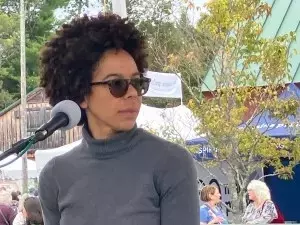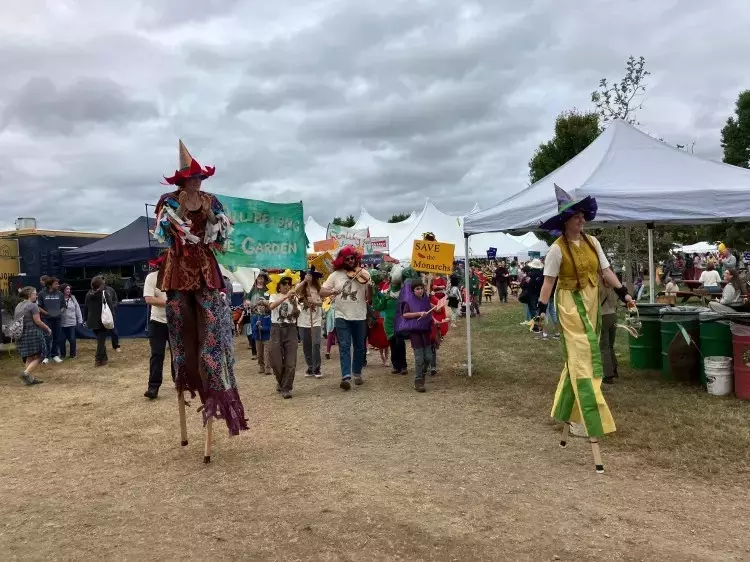Cultivating a Sustainable Future: MOFGA's Visionary Approach to Climate Action
The Maine Organic Farmers and Gardeners Association (MOFGA) is leading the charge in creating a healthier climate future, leveraging its support for local farmers, focus on organic produce, and innovative use of solar power to power the entire Common Ground Country Fair complex. Ayana Elizabeth Johnson, the keynote speaker at the 48th annual MOFGA fair, shared her insights on the critical role of sustainable agriculture and community-driven solutions in addressing the climate crisis.Empowering Communities to Cultivate a Greener Future
Embracing Sustainable Agriculture as a Climate Solution
MOFGA's commitment to supporting local farmers and promoting organic agriculture is a crucial component of its climate action strategy. Ayana Elizabeth Johnson, a renowned scientist, policy expert, and author, praised MOFGA's efforts, highlighting the importance of a more rural, nature-connected lifestyle in addressing the climate crisis. Johnson emphasized the potential for increasing the percentage of farmland in New England, from the current 1% to 5% or 10%, as a significant step towards achieving food security and sustainable food systems.Harnessing the Power of the Sun to Power the Fair
One of MOFGA's most innovative initiatives is the use of solar power to power the entire Common Ground Country Fair complex. This bold move not only reduces the fair's carbon footprint but also serves as a powerful demonstration of the potential for renewable energy to drive sustainable change. By embracing solar power, MOFGA is leading by example and inspiring others to adopt clean energy solutions in their own communities.Fostering Community Engagement and Climate Action
Ayana Elizabeth Johnson's keynote address at the MOFGA fair highlighted the importance of community engagement in addressing the climate crisis. She encouraged attendees to consider their unique skills and passions, and to find ways to contribute to climate solutions that bring them joy. Whether it's protesting, donating, spreading awareness, or working directly with land trusts and farms, Johnson emphasized the power of individual and community-driven action in creating a more sustainable future.Preserving Heirloom Seed Varieties and Protecting Agricultural Land
MOFGA's focus on organic agriculture extends beyond just supporting local farmers. The organization also works to preserve heirloom seed varieties and protect agricultural land, ensuring that these vital resources are safeguarded for future generations. By prioritizing the conservation of biodiversity and farmland, MOFGA is taking a holistic approach to building a resilient and sustainable food system.Embracing a Diverse Approach to Climate Solutions
Ayana Elizabeth Johnson's message at the MOFGA fair underscored the need for a multifaceted approach to climate action. She cautioned against relying solely on technological solutions, emphasizing the importance of community-driven initiatives, sustainable agriculture, and the preservation of natural resources. By embracing this diverse and comprehensive strategy, MOFGA is positioning itself as a leader in the fight against climate change, inspiring others to follow suit.You May Like









